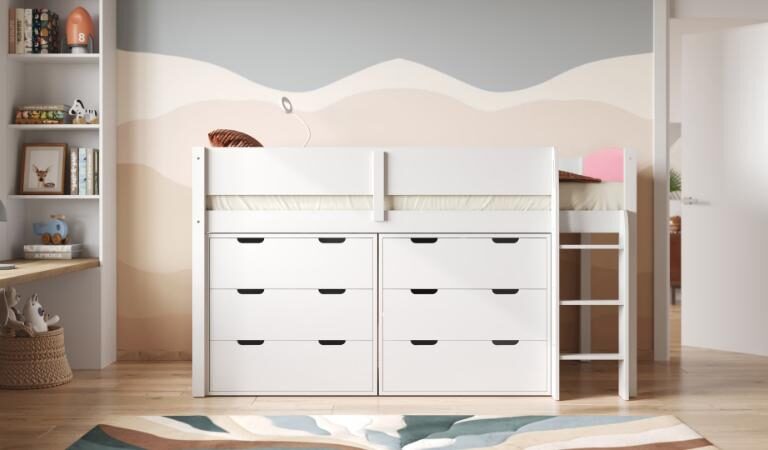Toilet anxiety is a condition that many people suffer from in silence. While others can leave the house without a second thought, those with toilet anxiety spend their days planning routes around accessible toilets, limiting their activities, and constantly worrying about whether they will need the bathroom at an inconvenient time.
This fear is rarely talked about, but research has shown that millions of people experience some form of toilet anxiety. The phrase toilet anxiety is ruining my life is something many sufferers can relate to, as the condition slowly takes away their ability to live freely and confidently.
But why is this fear so powerful, and what can be done to overcome it?
The Reality of Toilet Anxiety
Many people assume that toilet anxiety is simply about being embarrassed to use public restrooms, but the reality is much more complex. It often stems from a deeper fear of losing control, being judged, or not having access to a toilet when needed.
This can make everyday situations feel overwhelming. Whether it is a work meeting, a social event, or a long journey, sufferers find themselves constantly calculating risks, creating exit strategies, and dreading the possibility of being “trapped” without a toilet nearby.
Even though most sufferers have never actually experienced an accident in adulthood, the fear alone is enough to keep them in a state of high alert.
How Toilet Anxiety Restricts Your Life
Toilet anxiety does not just cause discomfort, it actively limits what people feel they can do.
- Avoiding social events – Many sufferers turn down invitations to gatherings, restaurants, and concerts, fearing that they will not have easy access to a toilet.
- Struggling with travel – Long car journeys, flights, or even short train rides become sources of panic.
- Feeling trapped at work – Those with toilet anxiety often find meetings, presentations, and office environments stressful due to perceived restrictions on when they can leave.
- Planning life around toilets – Instead of going wherever they want, sufferers choose destinations based on toilet availability, making life feel smaller and more controlled.
The result is a life dictated by fear, where even simple activities feel like overwhelming challenges.
The Psychological Toll of Constant Worry
Toilet anxiety is not just an inconvenience, it takes a real toll on mental well-being.
- Increased anxiety levels – The constant worry about toilet access keeps the brain in a heightened state of stress.
- Low self-esteem – Feeling controlled by anxiety can lead to frustration, guilt, and a sense of failure.
- Social isolation – Avoiding events and gatherings can make sufferers feel lonely and disconnected from friends and family.
- Depression – Over time, the limitations caused by toilet anxiety can contribute to feelings of hopelessness and sadness.
The Physical Impact of Toilet Anxiety
The cruel irony of toilet anxiety is that the stress it creates makes you feel like you need the toilet more. Anxiety activates the body’s fight-or-flight response, which can lead to:
- Increased bladder urgency – Anxiety causes the bladder muscles to tighten, making it feel like you need to urinate more frequently.
- Digestive issues – The gut is highly sensitive to stress, leading to bloating, stomach cramps, or diarrhoea.
- A heightened awareness of bodily sensations – Anxiety makes people hyper-aware of every small feeling, leading to false alarms about needing the toilet.
Because these symptoms feel real, they reinforce the belief that toilet anxiety is justified, making it even harder to break the cycle.
How to Overcome Toilet Anxiety
The good news is that toilet anxiety can be unlearned. It is a conditioned response, and with the right techniques, the brain can be retrained to stop treating toilet access as an emergency.
1. Challenge Negative Thought Patterns
Sufferers often assume the worst, but these thoughts can be questioned:
- Have I actually had an accident, or is this just my fear talking?
- Even if I needed the toilet, what is the worst that would happen?
- What would I tell a friend in my situation?
By questioning catastrophic thoughts, sufferers can start to break their grip.
2. Stop Avoiding Situations That Trigger Anxiety
Avoidance reinforces fear. Instead of skipping events or over-planning, start exposing yourself to situations where you feel uncertain, even in small ways:
- Take a short trip without checking for toilets in advance.
- Sit in a different part of a restaurant or cinema, not near the exit.
- Go on a longer journey and remind yourself that you will be fine.
The more you experience these situations without disaster, the more your brain learns that they are not a real threat.
3. Use Relaxation Techniques to Calm the Body
Since anxiety creates many of the sensations that feel urgent, learning to calm your nervous system can help:
- Deep breathing exercises – Slowing your breath signals to your brain that you are safe, reducing urgency.
- Progressive muscle relaxation – Releasing tension in the body helps relax the bladder and digestive system.
- Mindfulness and distraction – Focusing on something other than your fear can stop anxiety from escalating.
4. Gradually Reduce Safety Behaviours
Many sufferers rely on coping mechanisms that keep them trapped in fear, such as:
- Always checking toilet locations in advance.
- Limiting fluid intake to avoid needing the toilet.
- Carrying emergency supplies “just in case.”
These behaviours seem helpful in the moment, but they actually reinforce the idea that disaster is likely. Slowly reducing reliance on these habits can help break the cycle.
5. Consider Professional Support
For many sufferers, self-help techniques are a great starting point, but professional guidance can make a huge difference.
- Hypnotherapy – Helps rewire the brain’s automatic fear response and reduce the subconscious triggers behind toilet anxiety.
- Cognitive-behavioural therapy (CBT) – Teaches practical strategies for challenging negative thoughts and reducing avoidance behaviours.
The key is to find an approach that works for you and commit to changing the way you respond to fear.
You Are Not Alone
Millions of people experience toilet anxiety, and it can feel like a lonely struggle. But help is available, and overcoming this fear is possible.
If you want to learn more about how common toilet anxiety really is, check out this article on toilet anxiety statistics.
No matter how long you have struggled, you can retrain your brain, take back control, and start living life on your own terms.














Subscribe and Follow